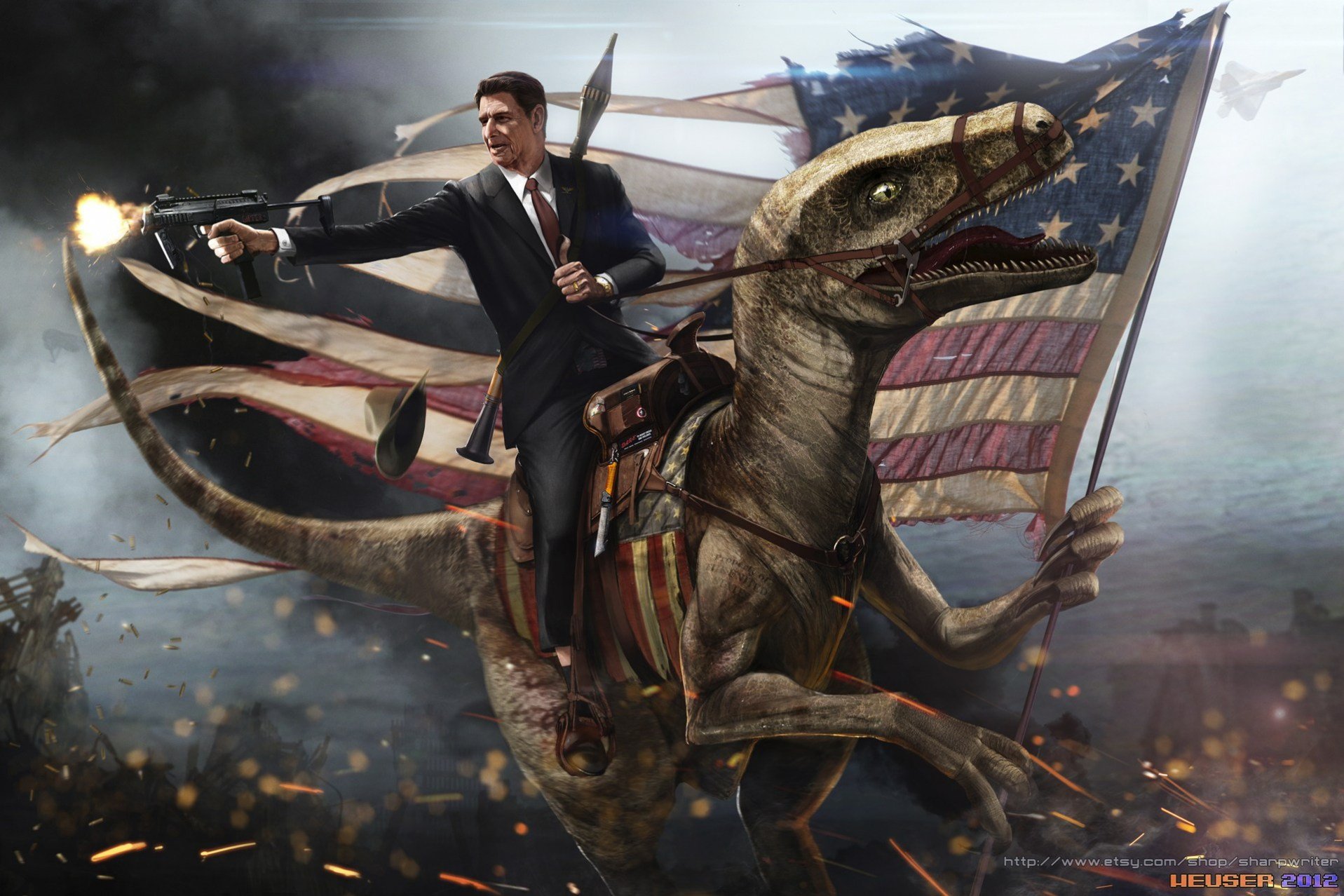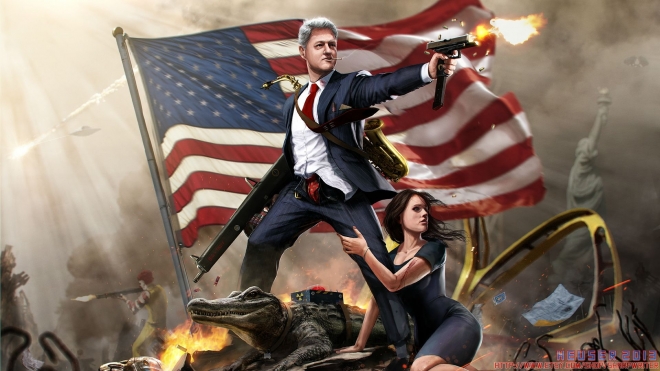L. Frank Baum's Oz series established American Fantasy as a genre, and yet it hasn't had much influence on popular tabletop role-playing games despite several American fantasy authors providing the inspiration for co-creator Gary Gygax's Dungeons & Dragons. Why not?
American Fantasy Defined
As described in The Fantasy Tradition in American Literature, the tenets of American Fantasy include a contrast between real world struggles and a fantasy land (Kansas vs. Oz), the Garden of the World set in the midst of the Great American Desert (Oz), and pastoral qualities that encompass the heartland like corn fields, crows, wildcats, and field mice. Baum's Oz is different in character but similar in texture to American agrarianism.
There is technology too, always at the cusp of becoming ubiquitous, with objects taking on a life of their own. Baum was uneasy about the impact of technology on society: concerned about the impact of "flying machines", worried about what would happen to premature children in "incubators", and wary of slick-talking characters using gimmicks and puppetry (the titular Wizard of Oz). Judging by the abuse Baum heaps on an animated phonograph, he wasn't a fan of recorded music either.
As Brian Attebery puts it in The Fantasy Tradition:
Gygax and Dave Arneson were following a European tradition, itself descended from historical battles of interest in Chainmail, infused with their own American influences, such that little of Oz appears in D&D. At least not overtly.
Ozian Elements in Plain Sight
Jack Vance's influence on D&D is significant. From the "Vancian" spellcasting system to the Eye and Hand of Vecna, Vance's work permeates the game. Vance was a big fan of Baum's work and cited him as a major influence. One character recreates the Land of Oz in The Madman Theory (written by Vance under the pen name Ellery Queen), but Baum's influence goes beyond that work and appears in the Dying Earth series, as explained in Extant #13:
Cugel, whose adventures take place in The Dying Earth setting, has more in common with the Wizard of Oz than Dorothy of course, and his adventures would go on to form the thief archetype in D&D, as per Gygax:
The Dying Earth wasn't a fantasy world, but a post-apocalyptic one set long after technology had fallen into decay. And that's a hint of where we can find Oz's influence.
Talking Animals, Weird Technology, and Untold Wonders
D&D has strayed from its cross-dimensional sci-fi roots, but one game has never wavered from its focus on a post-apocalyptic world filled with strange beasts, ancient technology, and hidden secrets: Gamma World.
The parallels between Gamma World and Oz (where animals can talk, characters can play robots, and humans are relics of another world), as filtered through Vance, finally gives Baum his due. If Baum was so influential on Vance, why hasn't there been more discussion of the parallels? The editor of Extant #13 explains:
This may be why Gamma World has struggled to find its audience like D&D has. Where D&D's tropes are so embedded in pop culture to be ubiquitous these days, Gamma World—like Oz—has alternately been treated as ludicrous, deadly serious, or just plain wacky ... the same criticisms leveled at Baum.
It seems we already have our American Fantasy RPG, it’s just a little “weirder” than we expected.
American Fantasy Defined
As described in The Fantasy Tradition in American Literature, the tenets of American Fantasy include a contrast between real world struggles and a fantasy land (Kansas vs. Oz), the Garden of the World set in the midst of the Great American Desert (Oz), and pastoral qualities that encompass the heartland like corn fields, crows, wildcats, and field mice. Baum's Oz is different in character but similar in texture to American agrarianism.
There is technology too, always at the cusp of becoming ubiquitous, with objects taking on a life of their own. Baum was uneasy about the impact of technology on society: concerned about the impact of "flying machines", worried about what would happen to premature children in "incubators", and wary of slick-talking characters using gimmicks and puppetry (the titular Wizard of Oz). Judging by the abuse Baum heaps on an animated phonograph, he wasn't a fan of recorded music either.
As Brian Attebery puts it in The Fantasy Tradition:
"Oz is America made more fertile, more equitable, more companionable, and, because it is magic, more wonderful. What Dorothy finds beyond the Deadly Desert is another America with its potential fulfilled: its beasts speaking, its deserts blooming, and its people living in harmony."
Gygax and Dave Arneson were following a European tradition, itself descended from historical battles of interest in Chainmail, infused with their own American influences, such that little of Oz appears in D&D. At least not overtly.
Ozian Elements in Plain Sight
Jack Vance's influence on D&D is significant. From the "Vancian" spellcasting system to the Eye and Hand of Vecna, Vance's work permeates the game. Vance was a big fan of Baum's work and cited him as a major influence. One character recreates the Land of Oz in The Madman Theory (written by Vance under the pen name Ellery Queen), but Baum's influence goes beyond that work and appears in the Dying Earth series, as explained in Extant #13:
"...I speculated that the Phanfasms inspired the village of Somlod, as seen through the lost lenses of the demon Underheard (Cugel the Clever), and that Sirenese society, in The Moon Moth, was inspired by the Whimsies. Among the scarce commentators on Vance there seems little interest in the Baum influence, while influences which are minor or even nonexistent are often emphasized, such as Clark Ashton Smith."
Cugel, whose adventures take place in The Dying Earth setting, has more in common with the Wizard of Oz than Dorothy of course, and his adventures would go on to form the thief archetype in D&D, as per Gygax:
Of the other portions of the A/D&D game stemming from the writing of Jack Vance, the next most important one is the thief-class character. Using a blend of “Cugel the Clever” and Roger Zelazny’s “Shadowjack” for a benchmark, this archetype character class became what it was in original AD&D.
The Dying Earth wasn't a fantasy world, but a post-apocalyptic one set long after technology had fallen into decay. And that's a hint of where we can find Oz's influence.
Talking Animals, Weird Technology, and Untold Wonders
D&D has strayed from its cross-dimensional sci-fi roots, but one game has never wavered from its focus on a post-apocalyptic world filled with strange beasts, ancient technology, and hidden secrets: Gamma World.
The parallels between Gamma World and Oz (where animals can talk, characters can play robots, and humans are relics of another world), as filtered through Vance, finally gives Baum his due. If Baum was so influential on Vance, why hasn't there been more discussion of the parallels? The editor of Extant #13 explains:
"Given Vance’s own repeated and enthusiastic declarations regarding Baum, as well as the obvious parallels between Vance’s favorite Oz book (The Emerald City of Oz) and several of his own stories, I cannot rid myself of the suspicion that this lack of interest suggests an enthusiasm about certain subject matters and styles rather than an interest in Vance as such. I also suspect the Baum influence lacks appeal because he seems old fashioned, quaint and childish. The fashionable taint of the weird is absent."
This may be why Gamma World has struggled to find its audience like D&D has. Where D&D's tropes are so embedded in pop culture to be ubiquitous these days, Gamma World—like Oz—has alternately been treated as ludicrous, deadly serious, or just plain wacky ... the same criticisms leveled at Baum.
It seems we already have our American Fantasy RPG, it’s just a little “weirder” than we expected.








